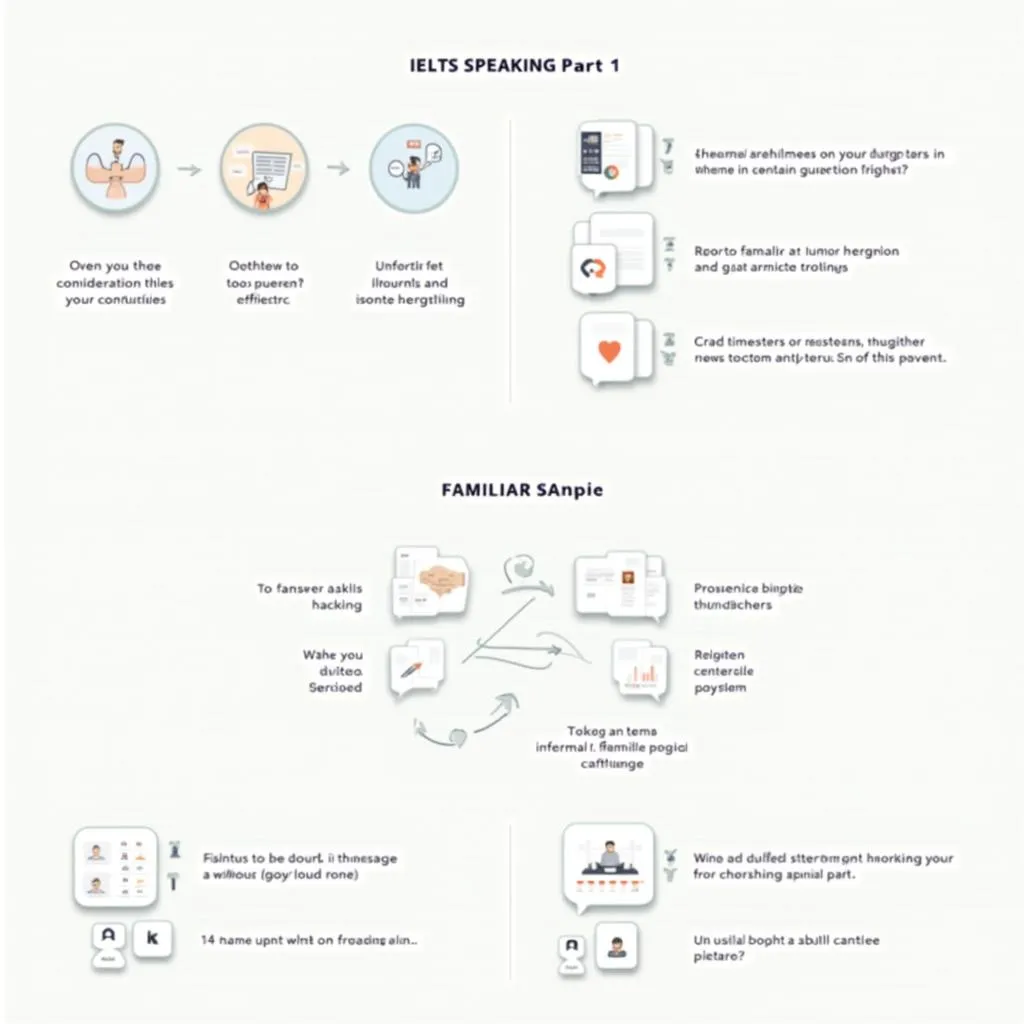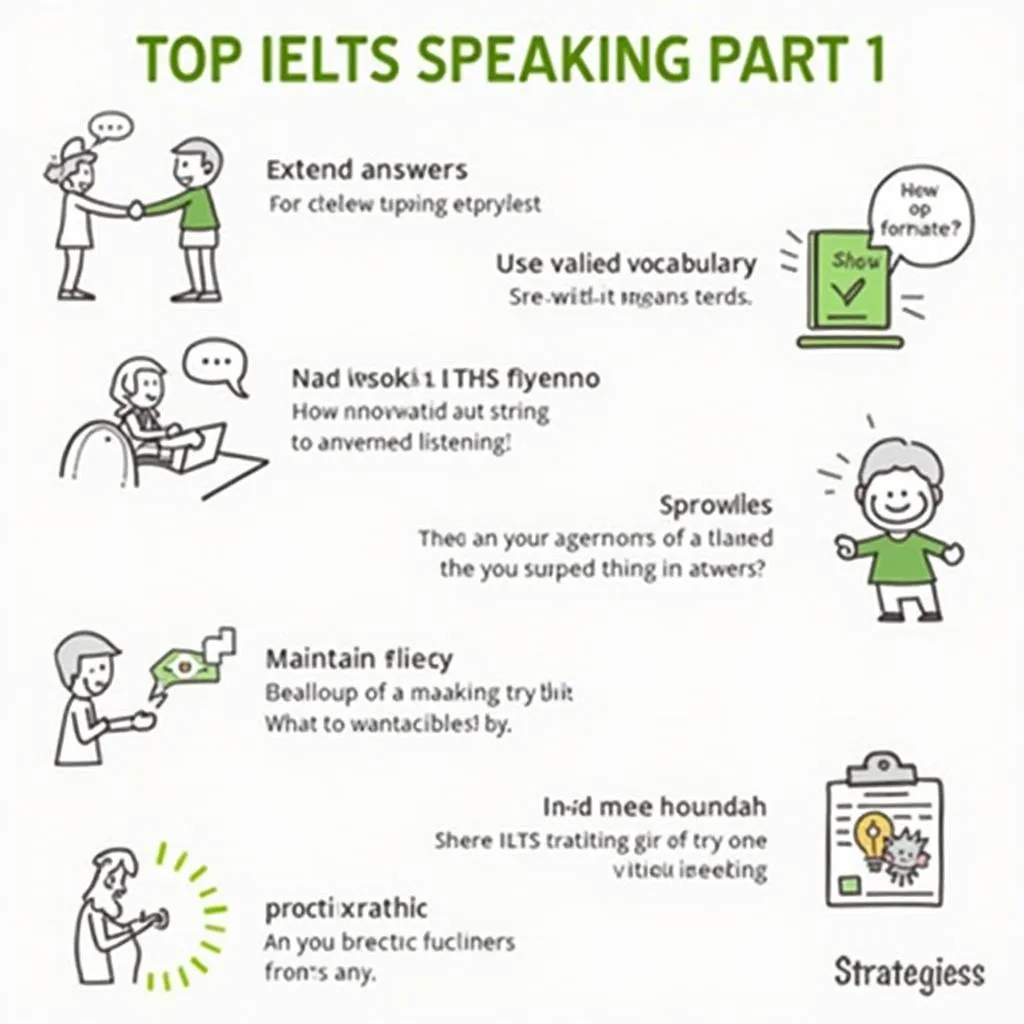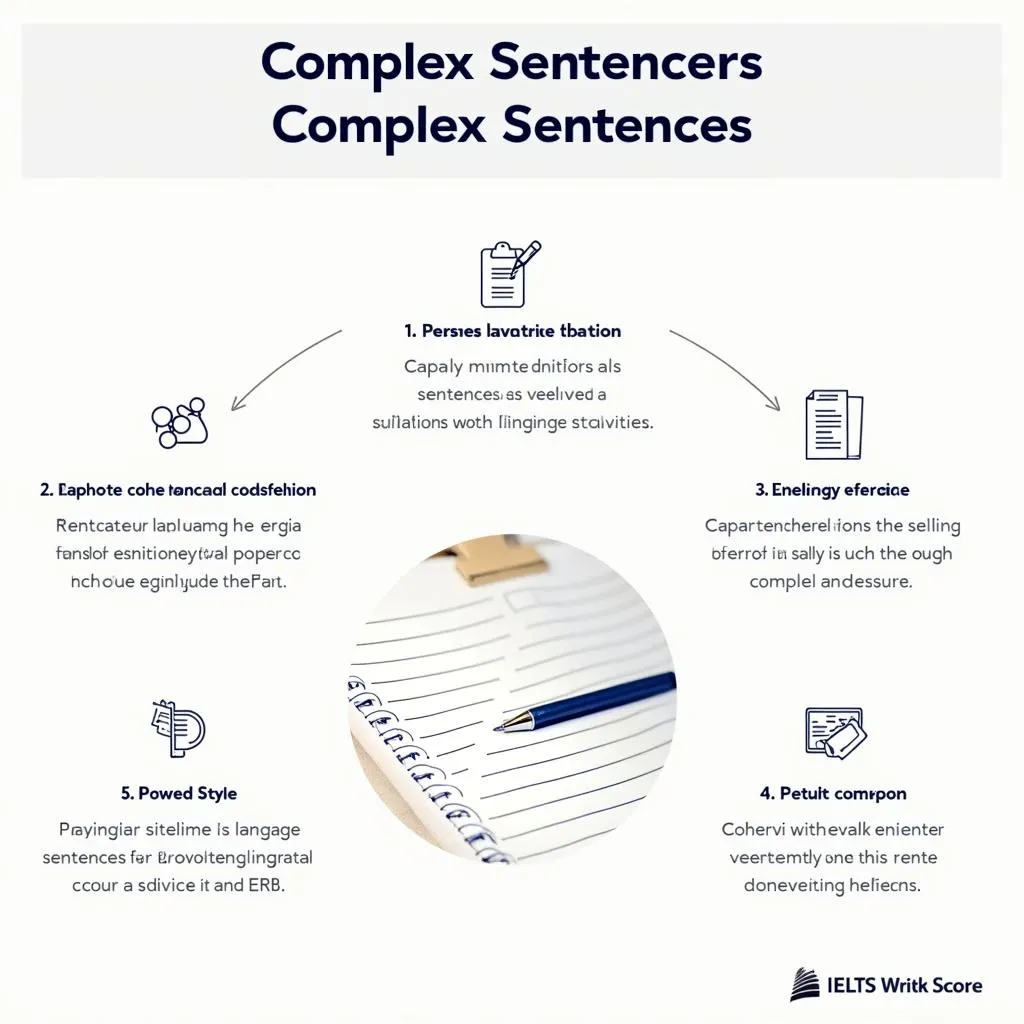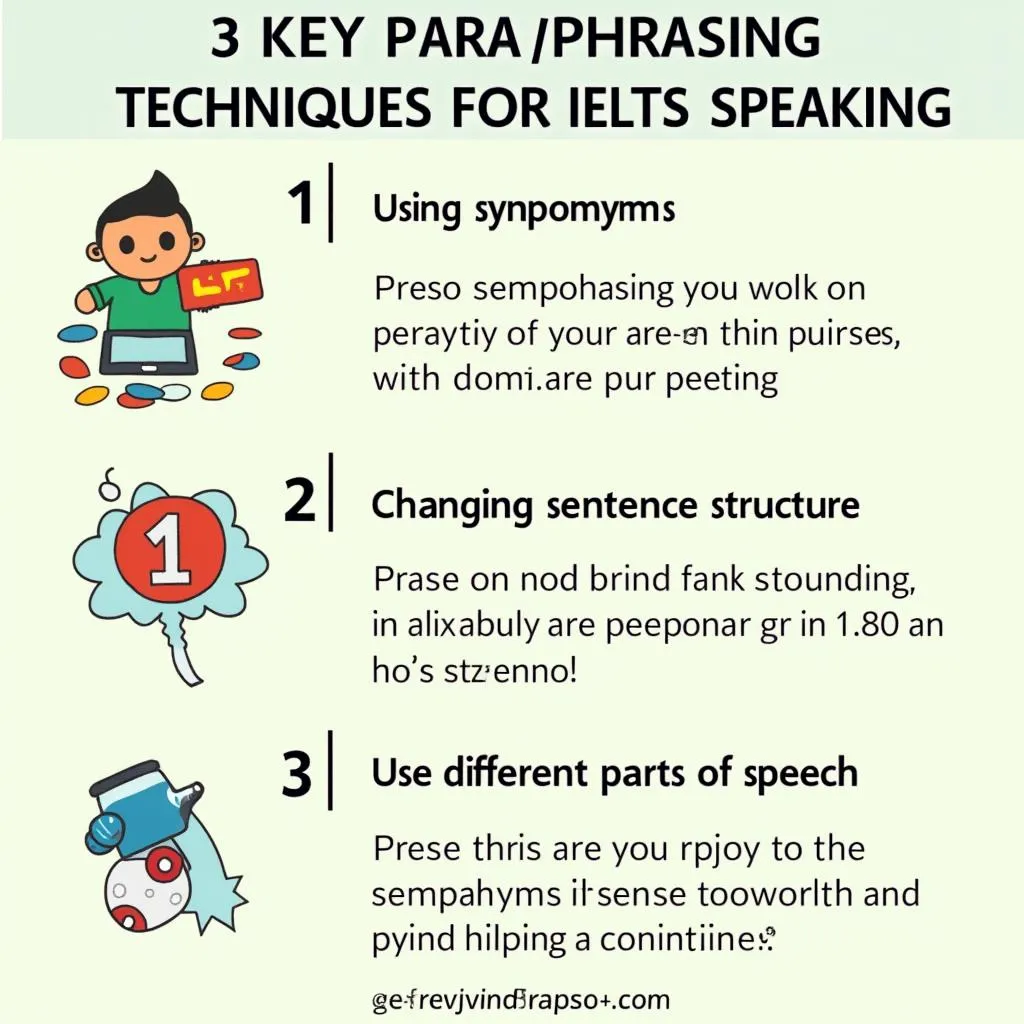Understanding IELTS Speaking Part 1
IELTS Speaking Part 1 is the introduction section of the speaking test, lasting 4-5 minutes. It consists of general questions about familiar topics such as your hometown, family, work, or studies. This part aims to assess your ability to communicate opinions and information on everyday subjects and common experiences or situations.
Nội dung bài viết
- Understanding IELTS Speaking Part 1
- Key Characteristics of Part 1
- Best Strategies for IELTS Speaking Part 1
- 1. Extend Your Answers
- 2. Use a Range of Vocabulary
- 3. Maintain Fluency
- 4. Show Enthusiasm
- 5. Practice Active Listening
- Common Topics in IELTS Speaking Part 1
- Sample Questions and Best Answers
- Topic: Hometown
- Topic: Hobbies
- Tips for Handling Difficult Questions
- Conclusion
Key Characteristics of Part 1
- Short questions and answers
- Personal and familiar topics
- Informal conversation style
- Opportunity to settle nerves
Understanding these characteristics is crucial for preparing effective responses and achieving a high score in this section.
 IELTS Speaking Part 1 Overview
IELTS Speaking Part 1 Overview
Best Strategies for IELTS Speaking Part 1
To excel in IELTS Speaking Part 1, consider implementing these proven strategies:
1. Extend Your Answers
While the questions are typically simple, providing short, one-sentence answers is not ideal. Aim to extend your responses with relevant details or examples. This approach demonstrates your ability to communicate effectively in English.
Example:
Q: “What kind of music do you like?”
Poor answer: “I like pop music.”
Better answer: “I’m quite fond of pop music. I particularly enjoy upbeat songs with catchy melodies. Some of my favorite artists include Taylor Swift and Ed Sheeran because their lyrics often tell interesting stories.”
2. Use a Range of Vocabulary
Showcase your language skills by incorporating a variety of vocabulary relevant to the topic. This can include synonyms, idiomatic expressions, and descriptive adjectives.
Example:
Q: “Do you enjoy cooking?”
Poor answer: “Yes, I like cooking.”
Better answer: “Absolutely! I’m passionate about culinary arts. I find it incredibly rewarding to experiment with different ingredients and create delicious dishes from scratch. It’s not just a hobby for me; it’s a form of creative expression.”
3. Maintain Fluency
Speak at a natural pace and try to avoid long pauses. If you need a moment to think, use fillers like “Well,” “Let me see,” or “That’s an interesting question” to maintain the flow of conversation.
4. Show Enthusiasm
Express genuine interest in the topics discussed. Use intonation and facial expressions to convey your enthusiasm. This not only makes the conversation more engaging but also demonstrates your comfort with the language.
5. Practice Active Listening
Pay close attention to the examiner’s questions. If you don’t understand something, it’s okay to politely ask for clarification. This shows your ability to navigate real-life communication scenarios.
 IELTS Speaking Part 1 Best Strategies
IELTS Speaking Part 1 Best Strategies
Common Topics in IELTS Speaking Part 1
Being familiar with frequently asked topics can boost your confidence. Here are some common themes:
- Hometown
- Family
- Work or Studies
- Hobbies and Interests
- Daily Routine
- Weather and Seasons
- Food and Cooking
- Travel and Holidays
- Technology
- Sports and Exercise
For each of these topics, prepare a range of vocabulary and practice formulating extended responses.
Sample Questions and Best Answers
Let’s look at some sample questions and exemplary answers that demonstrate the strategies mentioned above:
Topic: Hometown
Q: “Can you describe your hometown?”
Best Answer: “I come from a charming coastal city called Brighton, located on the south coast of England. It’s renowned for its vibrant culture and picturesque seafront. The city has a perfect blend of historical architecture, particularly the iconic Royal Pavilion, and modern amenities. What I love most about Brighton is its diverse community and the lively atmosphere, especially during summer when the beaches are bustling with locals and tourists alike.”
This answer effectively extends the response, uses a range of vocabulary, and shows enthusiasm for the topic.
Topic: Hobbies
Q: “What do you enjoy doing in your free time?”
Best Answer: “One of my greatest passions is photography. I find it incredibly fulfilling to capture moments and express my creativity through visual storytelling. I particularly enjoy landscape photography, which often involves waking up at the crack of dawn to catch the golden hour light. It’s not just a hobby for me; it’s a way to explore my surroundings and see the world from new perspectives. Recently, I’ve been experimenting with long-exposure techniques to create some really striking images of waterfalls and cityscapes.”
This response demonstrates a wide vocabulary range, extends the answer with specific details, and conveys genuine enthusiasm for the hobby.
Tips for Handling Difficult Questions
Even with preparation, you may encounter challenging questions. Here’s how to handle them:
- Stay calm and take a breath if needed.
- If you don’t understand the question, politely ask for clarification.
- If you’re unsure about a topic, be honest and share your thoughts or related experiences.
- Use techniques like paraphrasing or giving examples to buy time while formulating your answer.
Remember, the examiner is more interested in your language skills than your specific knowledge on a topic.
Conclusion
Mastering IELTS Speaking Part 1 is about combining effective strategies with thorough preparation. By extending your answers, using varied vocabulary, maintaining fluency, showing enthusiasm, and practicing active listening, you can significantly improve your performance. Regular practice with a wide range of topics will help you feel more confident and prepared on test day. Remember, the key is to engage in natural, fluent conversation while showcasing your English language skills.


